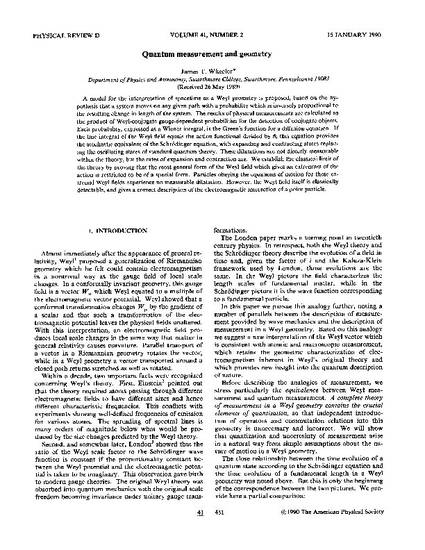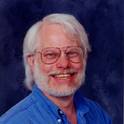
A model for the interpretation of spacetime as a Weyl geometry is proposed, based on the hypothesis that a system moves on any given path with a probability which is inversely proportional to the resulting change in length of the system. The results of physical measurements are calculated as the product of Weyl-conjugate gauge-dependent probabilities for the detection of conjugate objects. Each probability, expressed as a Wiener integral, is the Green's function for a diffusion equation. If the line integral of the Weyl field equals the action functional divided by ℏ this equation provides the stochastic equivalent of the Schrödinger equation, with expanding and contracting states replacing the oscillating states of standard quantum theory. These dilatations are not directly measurable within the theory, but the rates of expansion and contraction are. We establish the classical limit of the theory by proving that the most general form of the Weyl field which gives an extremum of the action is restricted to be of a special form. Particles obeying the equations of motion for these extremal Weyl fields experience no measurable dilatation. However, the Weyl field itself is classically detectable, and gives a correct description of the electromagnetic interaction of a point particle.

Published by American Physical Society in Physical Review D. Publisher PDF is available for download through link above.